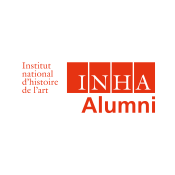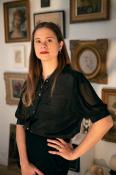Informations sur l’INHA, ses actualités, les domaines et programmes de recherche, l’offre de services et les publications de l’INHA.
Mecthilde AIRIAU
2018 Chargée d'étude et de rechercheDoctorante en histoire de l'art médiéval sur la question de l’utilisation de la couleur par les peintres florentins au XIVe siècle sous la direction de Philippe Lorentz au sein du Centre André Chastel depuis 2017.
Chargée d'études et de recherche à l'INHA de 2018 à 2023 pour les programmes "Colorants et textiles de 1850 à nos jours", "Ontologie du christianisme médiéval en images" et "La fabrique matérielle du visuel".



